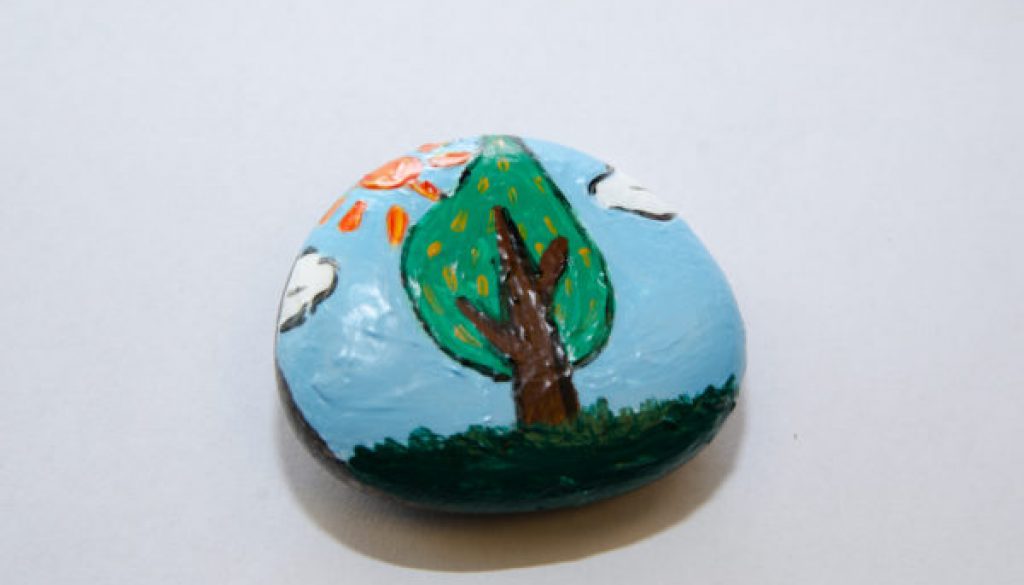There’s a lovely event recounted in the gospels of Jesus being anointed by a woman called Mary. Onlookers are embarrassed or indignant. But we read Jesus response in Mark 14:
Jesus said, “Leave her alone. Why do you trouble her? She has done a beautiful thing to me. For you always have the poor with you, and whenever you want, you can do good for them. But you will not always have me. She has done what she could; she has anointed my body beforehand for burial. And truly, I say to you, wherever the gospel is proclaimed in the whole world, what she has done will be told in memory of her.”
One commentator writes that world has never had a problem with religion in moderation Moderate worship never offends anyone. Semi apologetic, on-and-off Christianity, does not unsettle anyone. It just looks like something that some people do in their spare time. ‘Oh you go to church on Sundays. Nice one. Yeah, I play footie on Sundays.’ It appears like a past-time. Something that we fit in as part of our life, like an interest or pastime.
Passionate wholehearted Christianity, radical worship and discipleship like Mary’s, upsets people (especially many people in church!). It ruffles feathers because it speaks of a reality that cannot be compartmentalised under the heading of religion. It speaks of a reality that if true is about our whole lives not just occasional acts of worship.
Just as it ruffles some people, it also touches the hearts of those looking for more than window dressing for their lives. Those who see in Jesus the hope that they are longing for. The hope that life has a meaning and purpose worth giving everything for. Fullness of life.
Those responding indignantly to the woman justified their reaction in seemingly very Christian terms. ‘Why this waste … The perfume could have been sold for more than a year’s wages and the money given to the poor.’ Jesus knows that this is not what their reaction is really about. He tells them that a day will never go by without an opportunity to help them. Poverty is not caused by acts of generosity in the wrong direction, but by greed and selfishness.
Rather, what this whole thing is all about how we see Jesus. Do we see Jesus as one worth pouring out our hearts, our lives, our everything, for? A life in Christ that doesn’t transform the world by eking out scarce resources. But a life of God that is about giving in abundance – because God gives more than enough. And total dependence. A freedom to give everything to God.
In this woman’s encounter with Jesus we see the kind of freedom and love, we were created and saved for. A life where every action can be about worship. All about Jesus.
So three points from this passage that I think we can apply to our lives:
1. What we give to God from the heart echoes in eternity.
Jesus says: “I tell you the truth, wherever the gospel is preached through the world what she has done will also be told in, in memory of her.”
What we give to God from the heart has a significance way beyond the time of our earthly life – it lives on. God sees to it, that it lives on.The Indian poet Tagore tells a parable of a beggar who sees the chariot of the King of Kings coming down the road. Tagore wasn’t a Christian but it is interesting that phrase he uses – ‘the King of Kings’. The beggar thinks, “Yes!…”
The King of Kings stops beside the beggar and reaches down from the chariot and holds out his hand. But this is where the parable gets confusing. Because the King says,‘What do you have to give me?’ …
The beggar looks in his pouch at the bits and pieces he’s been collecting that day, and he takes out a single grain of corn, the smallest and the least.He places it in the palm of the king’s hand, and the king goes on his way, leaving the beggar wondering what is going on…
There are times in our life where giving is costly. Confusing even. There are times in our lives when all we want is something from God, and yet God seems to be inviting us to do something for him.- We are out of work, crying out for a job and some money, and God shows us someone who needs our help for free.- We are in hospital desperate for healing and reassurance, and God asks us to be kind and reassure the person in the next door bed. That kind of giving is all about the heart. It’s a sacrifice of praise.
The parable continues. The beggar gets to the end of the day and he pours out his little pouch. And he discovers a shining grain of pure gold – the size of the grain of corn that he had given the king. Tagore says that the beggar wept because he wished that he had poured out everything to hand to the King.
What we give to God from our heart – often when it is most costly – echoes into eternity. God turns it into gold: “I tell you the truth, wherever the gospel is preached through the world what she has done will also be told in, in memory of her.”
We don’t know whether this perfume was the most valuable thing Mary of Bethany had. But we know for sure that this was a costly sacrifice. Worship has always been about a sacrifice of the heart. Giving all that we have and all that we are to God because of who Jesus is. This was between her and Jesus.
From what we know of Mary of Bethany, she was someone who when Jesus came near, poured out everything to him. Not because her life was easy (difficult family… death of her brother…) But all through her life she gave all of her heart to Jesus. Poured out everything she had. That is our intention in worship. Literally so, as in this reading. We can live like that too. And I believe it begins in our times of prayer and worship.Times when we get the chance to pour out everything to God. As we do that in prayer and worship, we will find that our life becomes an acted prayer. A life of worship.
Sometimes all we want is for God to hold out his hand and give things to us that we need. And more often than I think we realise, he does just that. But prayer is about so much more than being like the 10p we put in the slot to make life work. It is about the living presence of God. Givng ourselves to him simply because of who he is and living with and for him.If we long for the presence of God just to give us what we need – we won’t be disappointed. God has promised to give us all we need. But if we long for something more than material – the presence of God for more than that. If we long for the presence of God because we want to know him more – to live for him and with him, for him to live through us. We will certainly not be disappointed. Those who pour out their lives to Jesus, find that he pours out his life through them. And often in the hardest times and places of our lives. Not necessarily spectacularly. But truly. Really.
2. God calls our acts of worship beautiful
Jesus responds to those who criticise Mary and says, ‘Leave her alone … She has done a beautiful thing to me.’
I find those words amazing. Jesus is the one through whom everything was made. Every beautiful thing you can think of in this world and in this life was made through Jesus.And he calls our acts of kindness in his name ‘a beautiful thing’. I love that. And what is more he takes them into his purposes. Jesus says, “She poured perfume on my body beforehand to prepare for my burial.” Mary could not have possibly known the significance of her actions.- That in two days Jesus would be dying on a cross for us.- When Jesus’ body was place in the grave, it would have still had the frangance of that costly perfume.
God takes our actions of love and kindness in his name. And he gives them a significance beyond what we could fully know. He does this because he loves to involve us in his plan for salvation.
I think it’s a bit like my painted pebble in my dad’s office. I didn’t understand how his office worked. Being a great Christian is not about understanding better than anyone else how salvation works. It’s simply about our love for our Father in heaven, and his love for us.What we give to God in the context of that will always make a difference.
What Mary did was a beautiful thing. And became part of the story of the greatest event in history – the death and resurrection of Jesus. The same is true for you and I. God calls our acts of kindness and love beautiful and he makes them part of his purposes – they echo into eternity.
3. Give to God what you have to give him, and what you would love to give him. Not what you feel you ought to give him.
Jesus says something fascinating to me and so comforting. He says, “she did what she could”.
Just a few verses earlier in Mark, he has pointed out to the disciples a woman in a very different situation. A widow in the temple putting in two tiny coins. And he says something very similar.
Jesus sees our different situations and is interested in one thing – our hearts. You see, God never asks as to solve everything. God invites us to do what we can do. And God does what only He can do.
Those around Mary want to make this about simply about poverty. But for Mary everything is first and foremost about Jesus.Our response to poverty should be first and foremost about our response to Jesus.Jesus’ words in this passage that we will always have the poor with us have been used down the years as an excuse for resignation. But Jesus is passionate about the poor. In Matthew’s Gospel, this event comes immediately after Jesus’ teaching on the final judgement. He describes a conversation in heaven. He says, “For I was hungry and you gave me something to eat, I was thirsty and you gave me something to drink, I was a stranger and you invited me in, I needed clothes and you clothed me, I was sick and you looked after me, I was in prison and you came to visit me.” And those hearing those words say ‘when was that?’ and the King replies, “I tell you the truth, whatever you did for the least of these brothers and sisters of mine, you did for me.”
Those who criticise Mary for wasting money have missed the point on so many levels.They have missed the point about who Jesus is – one who is worthy of everything we have because he is the source of everything we have.
They have missed the point about why we should care about the poor – because of God’s love and compassion. His total identification with all of us in our poverty.And because they have lost sight of these things, they see the needs of the world and their resources and in completely the wrong way.
Giving to the poor has become an onerous obligation. And that stifles the freedom of giving without counting the cost. Giving from the heart. Jesus says of Mary of Bethany, ‘She did what she could’. That is all he ever asks of us.
There is such freedom in that. We can look at the world around us and be overwhelmed at the needs. God wants our hearts to be broken. But not because we can’t do enough. He wants our hearts to be broken so that we can do what we can.
I believe that if you will ask him, God will put on your heart today something that you can give to him. Something that you would love (not ought) to give him. Christianity, grace, is never about obligation, law, always about freedom, love.
It may be something that is just between you and God, Or it may be something that for someone, in his name. An act of kindness to a neighbour or friend.
It may seem costly, or it may go unnoticed like the widows mite. What matters is that it won’t go unnoticed to God. Because he sees the sacrifice of the heart. He loves it when we give to him in love.
Don’t ask yourself, ‘is it enough?’ Just pour out your heart to Jesus and trust that as we do what we can, he does through us what only he can.
Praying for opportunities like these is a prayer to make our life one long act of worship. And like Mary, God will make sure our actions from the heart echo into eternity. Like my paperweight on my Dad’s desk, but a whole lot more beautiful!.



